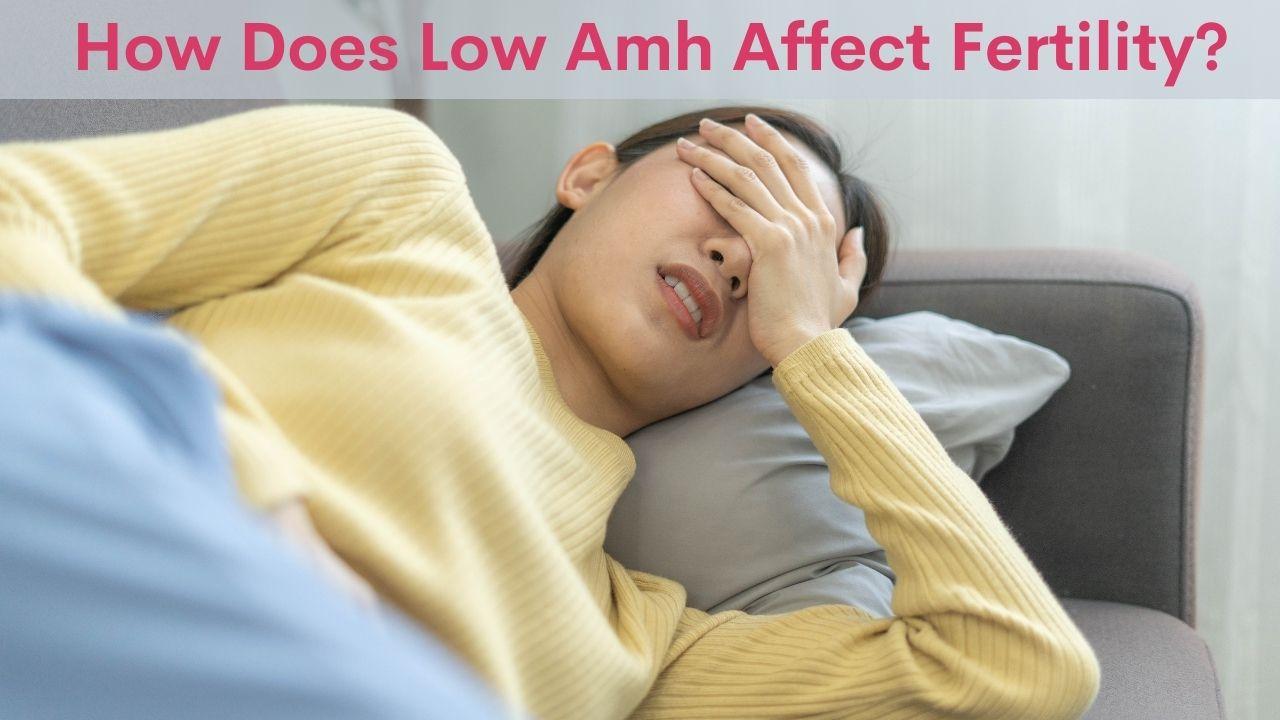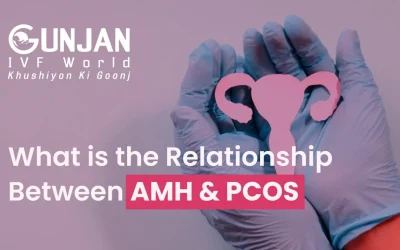Introduction
Anti-Mullerian hormone (AMH) is a test that provides information about your reproductive health. AMH is one of the best lab indicators for ovarian reserve (the number of eggs in your ovaries).
While your AMH is not the predictor of your ability to get pregnant today or at any point in the future, testing your AMH can help you understand the potential outcomes for infertility procedures like intrauterine insemination (IUI) and in-vitro fertilization (IVF) and also point you toward signs of early menopause (when your menstrual cycles come to a complete stop).
Let’s find out what low AMH means and how it influences pregnancy.

What is AMH exactly?
The pre-antral and antral follicles produce AMH in the ovaries — these are the follicles (tiny sacs that store and release eggs) in the active development process. The level of AMH in your body correlates to the number of developing ovarian follicles, which in turn correlates with the number of viable eggs.
The AMH naturally decreases with age as the ovarian reserve starts depleting, and women in their 40s frequently show low AMH results. AMH levels are considered reasonable if it is between 1.5-4.0 ng/ml, although age and other circumstances must be considered while making the most accurate assessment.
What’s considered low AMH?
The average AMH level for you will be based on your age. For AMH, different cutoffs for different age groups are used.
The levels are considered low for AMH values below 1.3 ng/mL. Even though 1.3 ng/mL is within the normal range, it is more likely to be associated with lower success rates during fertility treatments like IUI or IVF.
Low levels are in the bottom 2.5% for an age group, while extremely low AMH levels are almost undetectable. AMH level hits zero at menopause as the follicles are no longer developing.
Following are some of the factors that may affect your AMH levels. Before you request a test, your doctor must talk to you about your family history and lifestyle choices. These include:
- Family history or previous medical history of polycystic ovary syndrome (PCOS)
- Previous ovarian surgery
- Chemotherapy treatment
- Taking birth control medications
- Being overweight or obese
- Having specific genetic mutations that increase the risk for developing breast or ovarian cancer
- Vitamin D deficiency
20+ Years Of Experience as Fertility Specialists
20 Years Of Experience as a Fertility Specialists
National Fertility Awards 2023
Call Us
+919990044555
How does low AMH affect fertility?
Low AMH is not a cause of infertility, but it shows reduced egg reserve. When there are very few developing eggs in the ovaries, the chance of a mature and healthy egg being released and fertilized is also reduced.
In an age-related low AMH, the quality and quantity of the eggs are affected. This means that the chance of abnormal fertilization and miscarriage is also increased.
Also, when you have low AMH levels, you may not respond well to the drug given in infertility treatments such as IVF.
If you have low AMH and a regular menstrual cycle, which is between 21 and 35 days, you are likely going through ovulation. So if you are ovulating, you can get pregnant. If your cycle is over 35 or shorter than 21 days, or when you know you are not ovulating, it’s essential to talk to your doctor to determine the cause and help you get treatment on time.
Since low AMH levels may be correlated to a shorter reproductive window, it’s essential to consider how that might affect your family planning — both in terms of when you have them and how many you want to have.
Levels of AMH <1 for IVF are associated with:
- Lower egg yield at retrieval in an IVF
- High risk of cycle cancellation (meaning your IVF cycle is canceled and your eggs cannot be retrieved)
- High rates of abnormal fertilization
Book An Appointment
Follow Us On
FURTHER READING
When to test for AMH?
An AMH test can help you make proactive decisions about your pregnancy journey. It can be done in the following situations:
- When trying for pregnancy but want an insight into your fertile window.
- When actively trying to conceive and want to understand better, your reproductive health and map out your timeline for more kids in the future.
- If you are trying to conceive but have been unsuccessful yet, you get AMH test results for your doctor to determine the best course of treatment available to you.
Conclusion
AMH levels help detect your ovarian reserve or the number of eggs you have. As you age, these levels begin to decline. An AMH test acts as a diagnostic tool to help make decisions about fertility. But having low AMH levels cannot predict infertility.
Many infertility treatments can help you achieve pregnancy if your AMH levels are low such as IUI and IVF.
We at Gunjan IVF World Clinic have expert and experienced Gynecologist and Infertility specialists in Delhi. For more information on AMH levels or concerns related to fertility, get in touch with our specialist now!
Share this with
Related Blogs
What is the Relationship Between AMH and PCOS?
Polycystic ovarian syndrome (PCOS) is a hormonal disorder that affects women of reproductive age. It is characterized by menstrual irregularities, cysts on the ovaries, and high levels of testosterone.
Can IVF work with low AMH?
If you and your partner have been trying to conceive for a long time and are unsuccessful every time, you might think of resorting to the IVF process. However, if you have a low AMH problem, there might arise a question. It is: Can IVF work when you have low AMH or not? But before answering this question, you will have to understand what is low AMH and how IVF works completely? It will help you make the right decision for yourself.
Follow Us On
About Author





